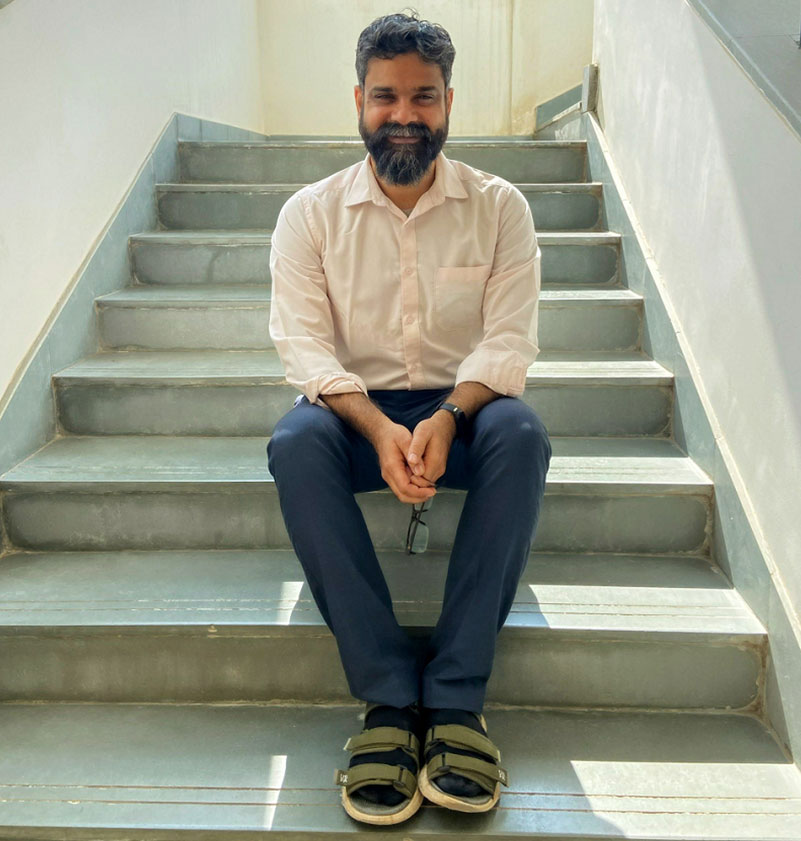Here is a sneak preview of the courses I am teaching or have taught in the past at BITS.
1.HSS F222: Introduction to Linguistics:
Difficulty level: Moderate.
Monica's father is from Portugal, and mother is from Germany. Monica was born and brought up in Hyderabad and goes to schools in Hyderabad. Which language do you think Monica would speak, namely Portuguese, German, Telugu, English or Hindi? People of Pandu tribe are called Pandav. People of Raghu tribe are called Raghav. What would you call the people of Yadu tribe? How did you figure out the answer? Someone asks Monica, "What's the time?". Monica say, "Time is the temporal continuum of space". Everyone laughs around her. Why? If these and similar questions excite you, and you are looking for erudite answers to these questions, then this course is for you!
2.HSS F228: Phonetics and Spoken English
Difficulty level: Easy-Moderate.
"Haeo di ya do mayt!" Didn't understand? What if I told you that the statement was made by an Australian person? Still not? What if I told you that he was saying, "How do you do mate". I bet you are able to read the statement in perfect Australian accent now! Does that excite you? Have you struggled to understand what the bloke reading the news on BBC is saying? Are you fascinated by the way Shashi Tharoor and Karan Thapar speak? Do you love the way African American rappers put emphasisssssssss on every word while rapping? Does an argument in commentary box of a world cup cricket match between an Australian, south African and Indian commentator excite you because of all the lovely ways they speak the same language, English? Do you love accents, and want to learn more about how people speak, specially the English language? Then this course is for you.
3.BITS F112: Technical Report Writing
Difficulty level: Easy-Moderate.
Report Writing is the fact of life. It is a necessary evil. But while you may not enjoy writing reports, it does not have to be your weakness as well. In this course we learn various aspects of writing reports, e.g. dividing a manuscript into sections, planning each section, writing in a formal writing style, reporting data, providing citations, etc. But we begin with learning the things you might take for granted, like how to write formal emails, how to critically read things, and how to take down notes.
4.BITS E661: Research Methodology (for PhD candidates)
Difficulty level: Easy-Moderate.
Conducting research is a multiple-task enterprise. It requires planning, running the experiments, observing the data, writing the report and publishing. In this course, we take a look at some of these aspects and learn some practical tips that will ease your process of conducting and reporting the research. It is a general course, it is suitable for researchers from all fields.
5.PHIL C221 / HSS F236: Symbolic Logic
Difficulty level: Difficult.
Language is versatile but ambiguous. If I tell you, "I saw an elephant with a telescope". What do you understand? Did I have the telescope or the elephant? What if instead of speaking in English language, I expressed it as saw[I, elephant{with(telescope)}] or saw[I{with(telescope)}, elephant]. Now does it become clearer? Mathematical notations provide the power to express things elegantly and without ambiguity. In this course, we learn the formalism of symbols as applied to doing logic. Naturally, on the way, we learn the basics of logic as well.
6.HSS F242: Introduction to Phonology
Difficulty level: Moderate-difficult.
Have you ever realized what the difference is between /p/ sound and /b/ sound? They are both produced with the same speech organs, i.e. lips. They are both produced in the same manner, i.e. block the air and then release it. So they are similar. You do not confuse the word 'pack' with the word 'back'. So these sounds may be similar but they not the same. So where is the difference? Every wondered why Japanese words always have a consonant followed by vowel followed by a consonant, then a vowel, and so on (Think of Yamaha, Miyazaki, Nipono, Sushi, Takahashi, Watanabe, Nakamura, Suzuki)? You learn in this course, the idiosyncracies of language, and how what seems like idiosyncracies on the surface, are really rule bound in the deep. Unlike Phonetics and Linguistics, this is a technical course.
Courses in the pipeline:
- Introduction to Syntax: This course shall
- Introduction to Cognitive Neurosciences


 An Institute of Eminence
An Institute of Eminence







